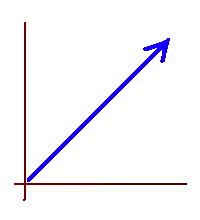But you can find the right answer anyway
Test prep books are very well written and edited. They generally present the right solution for almost every single problem included but every once in a while (seldom though) you can find a mistake. Sometimes the given answer for a problem may be wrong or, even more rare, some questions don't make sense from a strict, formal, rigorous, mathematical point of view.
The following question is a perfect example of this:
Select the number that is not a factor of 6/288.
All the five options given in the book are fractions (and different from zero).
Four of those fractions have a numerator that is a factor of 6, and have a denominator that is a factor of 288.
The other fraction is 2/11, where the denominator, 11, is not a factor of 288.
It turns out that is the answer the book indicates as the correct one. So thought by whoever designed that particular problem.
But strictly speaking, the question does not make any sense at all.
The set of rational numbers is a field, an algebraic structure where every non-zero element is a unit. In a field every element can be divided by any non-zero element.
That means, according to the technical definition, any non-zero fraction is a factor of any other fraction.
That is why the question does not make sense, because, in the domain of the rational numbers, the fraction 2/11 is a factor of 6/288.
How come? Simple: (2/11)(33/288) = 6/288.
There is a fraction, namely 33/288, that multiplied times 2/11 gives 6/288 as the result.
That makes 2/11 a factor of 6/288.
In the same way, given any non-zero fraction, we can always find another fraction to multiply it by and get 6/288 a result.
For that reason, it makes no sense at all to talk about factors of a fraction. Once we are dealing with fractions instead of restricting ourselves to whole numbers, every non-zero fraction becomes a factor of any other fraction.
So the term "factor" totally loses meaning in this context.
Fortunately in this case, it is still possible to figure out the answer the creator of the problem wants you to give.
Thinking Thursday: Payday Puzzle
-
Writing to Learn Math: Math journal explanations avoid the formality that
turns so many students away from geometry proofs. Do you want your children
to de...
5 hours ago





No comments:
Post a Comment